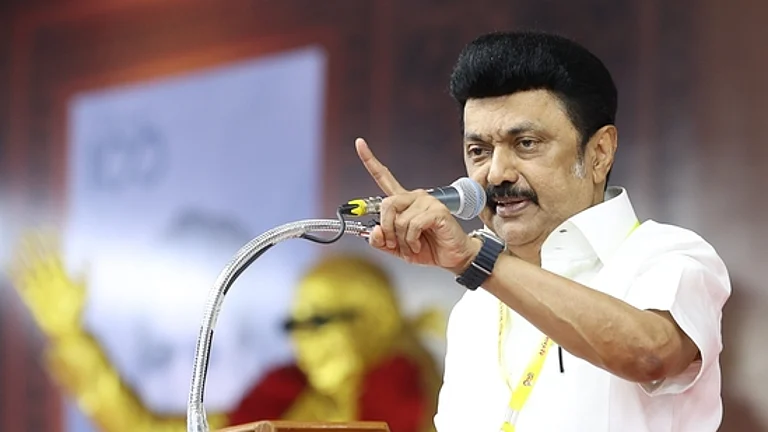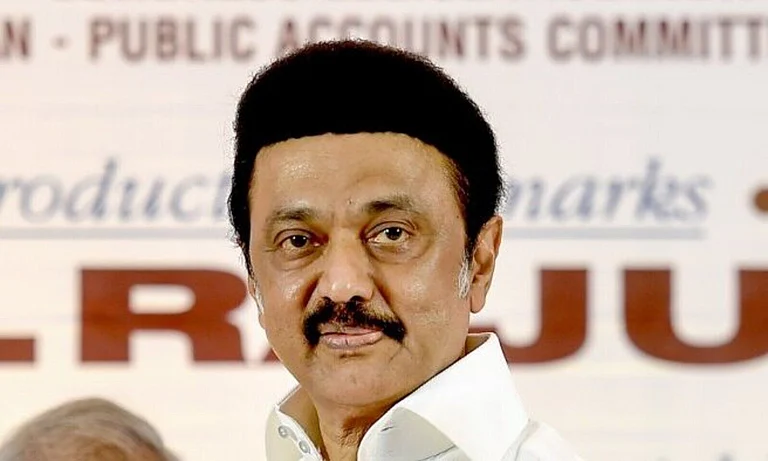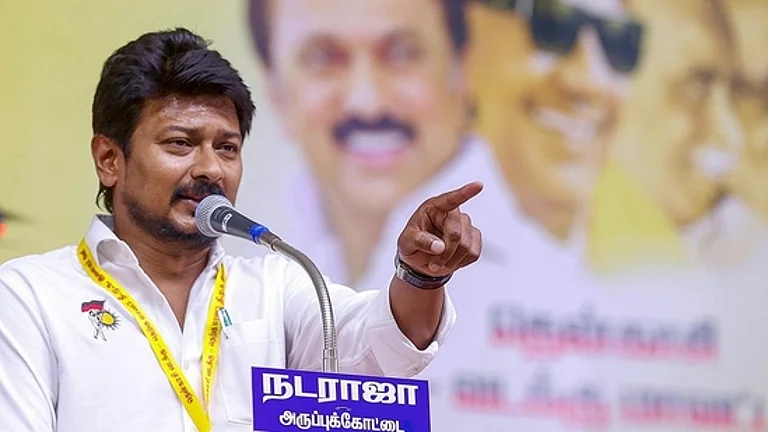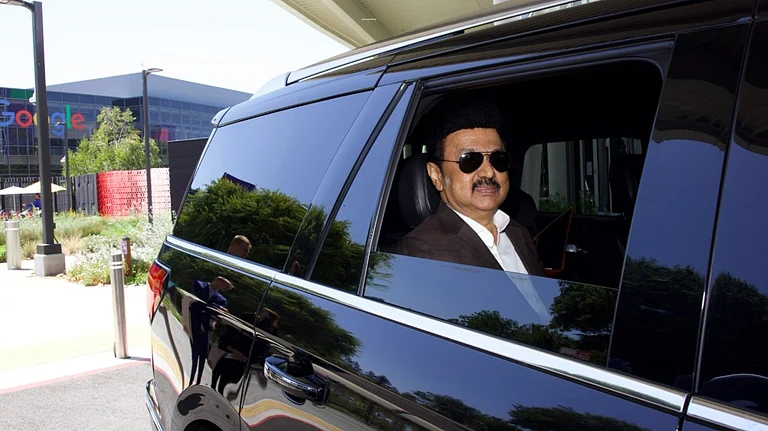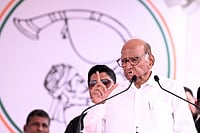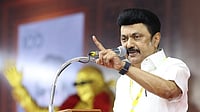The Tamil Nadu Assembly on Wednesday adopted a resolution against the Centre's proposed 'One Nation, One Election' policy, terming it impractical and undemocratic.
The Assembly also passed a resolution on the delimitation exercise, stating that the population of 1971 (census) should be the criteria for carrying out the process, if it was to be held for 'unavoidable reasons.'
Moving the two resolutions, Chief Minister M K Stalin described as 'autocratic', the one nation one election proposal.
He dubbed as a conspiracy the proposed move to carry on with the delimitation exercise after the year 2026, based on the census (which may be conducted following the Lok Sabha polls).
Further, he said it would lead to a drop in the number of elected representatives for Tamil Nadu and the southern states.
In March 2023, then Union Minister of Law and Justice, Kiren Rijiju had said in Rajya Sabha that the next delimitation exercise may be conducted after the first census to be taken after the year 2026.
Stalin said, both the proposals impinged on democracy and must be opposed in unison.
"The one nation one election is out-and-out impractical and it is against the basic feature of the Constitution. It is fully opposed to the Constitutional guarantee of independent, free and fair polls," the chief minister said.
The proposal may lead to dissolution of State Assemblies in advance which is against the Constitution. "If the government at the Centre is to fall, will all state assemblies be dissolved ? Similarly, if governments in a few states were to be short-lived, will those in power at the Centre demit office ? Could there be a policy more comical than this," he asked.
Holding elections to local bodies is in the state government's domain and to make a claim to conduct local polls as well meant usurpation of state's rights.
As regards the delimitation exercise, it hangs over Tamil Nadu and south India like the Sword of Damocles.
The delimitation exercise is a 'punishment' for states that reduce their population. The number of constituencies in both the houses of Parliament and in the Assemblies are cut down for such states that reduce population.
States that did not show interest in reducing population will get additional prize as their representation will increase in Parliament. This cannot be accepted and 'we must oppose this.'
MLAs belonging to parties including the Congress, VCK, MDMK and the Left parties backed the government's two resolutions.
On delimitation exercise, AIADMK's Arunmozhi Thevan said if it was to be held on the basis of the 1971 census, his party would support it.
BJP's Vanathi Srinivasan said 'we share your concern,' and assured the House that necessary steps will be taken by her party in this regard.
On the 'One nation, one election' proposal, Thalavai Sundaram (AIADMK) said his party has told the panel studying the matter that the his party may back the proposal only if its related ten proposals were positively considered.
Vanathi Srinivasan said the resolution on the one nation one election proposal was not needed. Apprehensions in this regard were 'imaginary.'
The proposal does not include local bodies and opinions may be conveyed to the relevant panel and hence the resolution was unwarranted.
Leader of the House Duraimurugan cited receipt of an official letter seeking 'insights' on holding polls to local bodies alongside other legislative bodies.
Later, both the resolutions were passed by a voice vote. Speaker M Appavu declared the resolution on delimitation was passed unanimously.
On simultaneous polls, the resolution said: "This august House urges the Union government not to implement the 'One Nation, One Election Policy' as the theory of one nation, one election is against the basis of democracy; impractical; not enshrined in the Constitution of India."
In a vast and diverse country like India, elections to local bodies, state Assemblies and the Parliament are being held at different times on the basis of people centric issues. Also, the proposal went against the idea of democratic decentralisation, the resolution said.
Further, "this august House urges the Union government that the delimitation process to be carried out after 2026 on the basis of the census should not be carried out."
Due to unavoidable reasons, if the number of seats --on the basis of population-- were to be increased, 'it shall be maintained at the present ratio' of the constituencies between the states in the state Assemblies and both Houses of Parliament, fixed based on the population of 1971.
"This august House also urges that states like Tamil Nadu should not be penalised for implementing various socio-economic development programmes and welfare schemes for the benefit of the people over the past 50 years."







